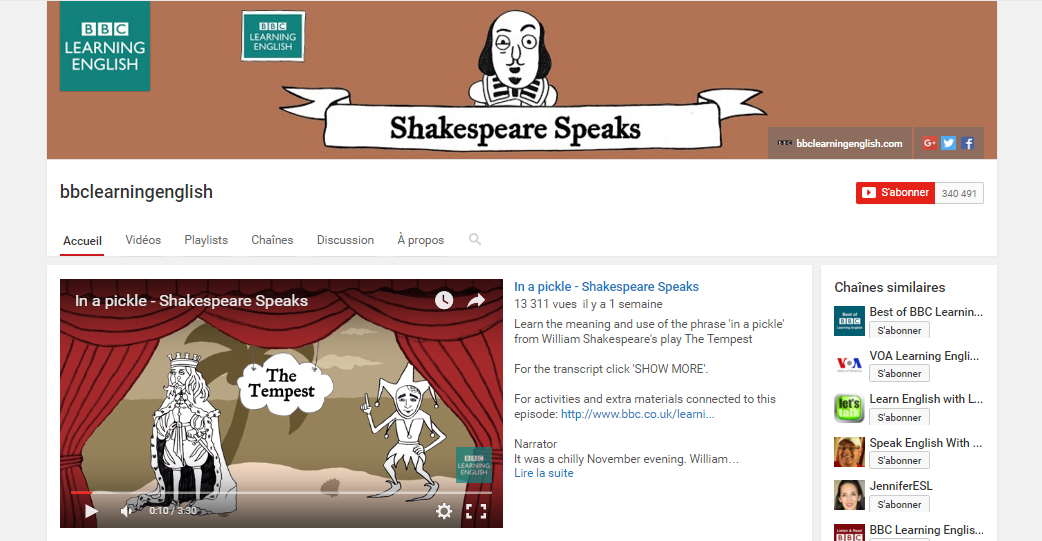Whether it’s heading off to study abroad, taking private lessons with a language tutor, or planning to live in another country, there are several ways to learn a new language. Though there are many different tools, some are not always adaptable or manageable for everyone. Luckily, we live in an era where it is possible to learn a language in the comfort of our own home as well as not having to spend any money to do it! The internet is a gold mine to learn languages for free. In this article, we’ll show you a few tips for learning a foreign language quickly, efficiently, and most importantly, at no cost!

Our Tips on How to Learn Languages For Free
1. How to Get Started…
Before anything else, it is important to allow your ear to get used to new sounds, tones, words, etc. In other words, get used to the new language you’re learning. Start by listening to natives speaking the language and pay attention to the sounds and words which form sentences. As you would listen to your own language, the same concept carries over to any new foreign language.
There happens to be many free resources at your disposal on the internet, and I highly recommend YouTube. Why?
YouTube has numerous videos in pretty much every language. Videos allow you to quickly get used to the language by watching and listening to real native speakers. YouTube doesn’t just stop there as you can easily find and subscribe to channels especially created for language learning. Once you subscribe, you can easily go back to these channels for new videos, updates, or playlists.
The advantage? Depending on which channel you choose, they can be great to help improve listening comprehension, pronunciation, conjugation, and grammar.
2. Listening Skills for a Better Understanding
Apart from listening to a language to get familiar with its intonation, you can also listen to improve you comprehension. You can’t travel for free, but you can reproduce a linguistic immersion at home without having to go anywhere. How? Three helpful tools online are TV, films, and radio.
- With TV, the advantage is that you can watch any program that interests you. By watching TV, you improve in every aspect of listening comprehension. However, I’d advise you to start off by watching news channels. Why? Although they speak quite fast, news channels are often accompanied with subtitles which allow you to follow what the presenter is saying (making it easier to understand).
To have access to TV for free: we recommend FilmOn, a website that gives access to all TV channels in the world.

- As for movies and series, you are able to decide whether to watch them in their original version with or without subtitles (improving both your listening and reading comprehension). Need help finding the right foreign movies?
- movies in British English
- movies in French
- movies in Spanish
- movies in Portuguese
- movies in Italian
- movies in Russian
- movies in German
- Radio is also a free resource, although you do need to have reached a certain level to be able to follow along. Listening to the radio is the best tool to help you get acquainted to the rhythm of the language, improving your pronunciation and your intonation while maintaining a flow.
Similar to TV, there are many websites that offer free access to the radio around the world such as Tune In.
3. Writing Skills

Learning how to write correctly takes time and effort, especially to properly understand a foreign language’s grammar and syntax. Written language also helps you learn conjugation as well as building your vocabulary.
While some websites are dedicated to foreign TV and others to radio, there are some websites that offer free access to newspapers from around the world. Some examples? Newsmap.jp and newspapermap.com are two websites to frequently use for reading in a foreign language.
4. Exercises
The power of the internet doesn’t end here!
There are no secrets, to master a language, you have to speak and practice. Don’t be afraid of going for it, practice makes perfect! Traveling is a great way to exercise a foreign language, but a trip doesn’t qualify as a free learning method. If you are unable to find foreigners to communicate with, you can meet them online for free thanks to language exchange sites (click on the link to find our selection).
Language exchange sites allow you to make contact with people from around the world that want to learn a language in a cool and efficient way through meeting new people, and without spending any money to do so. More than mere contact websites, language exchange sites transform into polyglot communities with native speakers and new speakers alike.
Apart from being able to practice a language regularly and without limits, the main advantage with these websites is that they can also help you build true pen-pal friendships. It’s nicer to learn a language by simply chatting with someone than taking online lessons all by yourself.
If you’re a bit worried of your lack of vocabulary for your first meeting with a native speaker, you can download our phrasebooks for free!
5. Some Ending Conclusions to Learn Languages for Free
If you take up the challenge to learn a new language, my first piece of advice would be to study it regularly and then study some more. You only need a few minutes of your day (while at the metro station, in the toilet, in bed, etc.) to quickly assimilate and learn a little at a time. So don’t hesitate in making time every day to listen to the radio, watch a video, or chat with a language partner.

Related posts:
Start learning a new language today

Good news: we can help!
More good news: you can get started for free! Start your free trial now and for the next 15 days, take advantage of the most effective language learning method on the market!
Vocabulary flashcards, videos with subtitles, audiobooks, articles adapted to your level – with MosaLingua Premium (Web & Mobile), you’ll have access to all this and more. Get started right now. It’s free—and risk-free—to try!






Comments